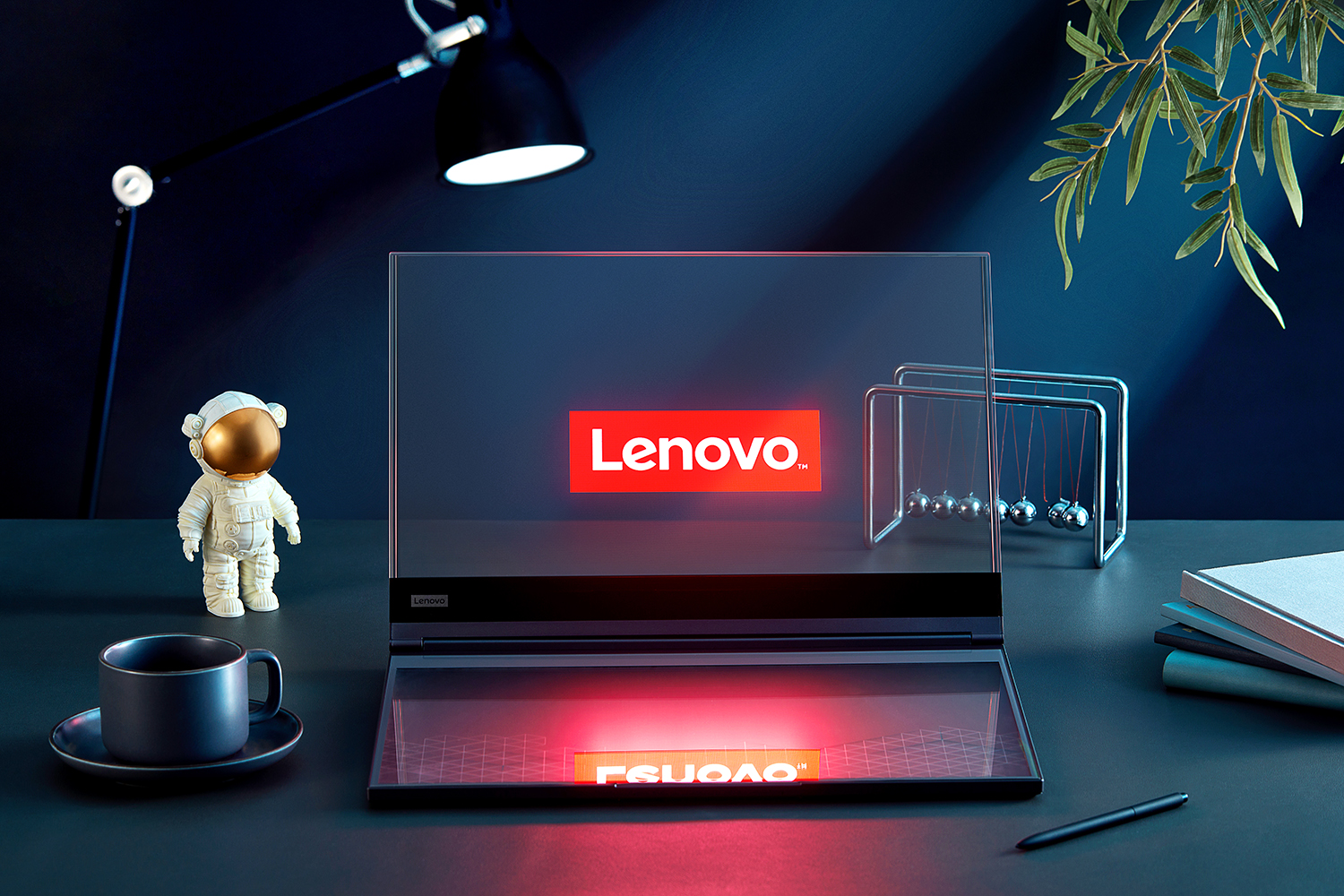In the face of global challenges, such as the technological rivalry between China and the United States, Poland faces the need to define its position in the international AI arena. In an interview with Piotr Sankowski, Ph.D., professor at the University of Warsaw and president of IDEAS NCBR, we discuss topics concerning the future of artificial intelligence, startups and innovation in Poland. Dr Sankowski emphasises that despite existing barriers, such as limited funding or ‘perpetual startups’, there are opportunities for the development and commercialisation of innovative technologies.
Bartosz Martyka, BrandsIT: Thinking about the topic of this talk, the topics of start-ups and the interaction between science and business in Poland obviously came to mind first. The topic of artificial intelligence, which has also been widely commented on, seems to be key. However, I also see room for a discussion on geopolitics, as I think it is difficult to discuss AI topics widely without including geopolitical aspects. I am curious to hear your opinion on this issue.
Piotr Sankowski, PhD, Prof. UW, President of IDEAS NCBR: Of course, we are certainly at some distance from the mainstream, both because of the changes in the political environment that have been going on for several years, as well as other factors. I hope that this situation will change thanks to the initiatives of the Minister of Digitalisation. I also hope that artificial intelligence will gain importance in Polish science.
“Above all, however, Poland’s position on the international AI scene is weaker due to the lack of financial investment that standardly supports startups in other countries.”
Above all, however, Poland’s position on the international AI scene is weaker due to the lack of financial investments that standardly support startups in other countries. A startup seeking investment in Poland usually finds significantly less capital, even 10 times less, than similar projects in the United States or Western Europe. Such financial disparity makes it extremely difficult to compete on the international market.
Bartosz Martyka, BrandsIT: Is it realistic for a figure of Bill Gates’ stature to emerge in Poland, a visionary capable of creating a company comparable to Microsoft, in light of the promises and policies of Mateusz Morawiecki’s government?
dr hab. Piotr Sankowski, prof. UW, President of IDEAS NCBR: The realisation of such a scenario seems unlikely, given the experience to date, that in Poland we often end up with promises, e.g. such as plans for electric cars, which turned out to be unrealistic. One wonders on what basis these announcements were made and how they were shaped. The current rhetoric, of the new administration, also seems to be carried out with great panache, which raises some concerns. For example, the vision set out on aidla.co.uk suggests that we are to become a world power, which raises questions about the realism of such declarations. It would be nice if such declarations were followed by announcements of real action.
There is also a problem with our approach to science and innovation. In Poland, we tend to overestimate our achievements, as in the case of graphene, expecting each of them to be groundbreaking and gain global recognition. However, such a perspective is rarely confronted with international standards, making it difficult to realistically assess our place in the world of science and innovation. Improving this situation would require a more realistic view of our capabilities and achievements.
The Ministry of Digitalisation has taken steps in this direction, engaging experts with international experience to help assess our situation from a broader perspective. This approach is also evident in NCRD’s IDEAS activities, where we have sought to ensure that the Scientific Council evaluating the research has an international composition. We have sought to have the majority of members from abroad to provide a global perspective on the innovation and research being conducted at our site. A change in mentality towards openness to international evaluation and collaboration seems crucial for future success in science and innovation.
Bartosz Martyka, BrandsIT: We are currently observing a technological rivalry between China and the United States. Where does Poland stand in this race, especially in the context of artificial intelligence?
Piotr Sankowski, Ph.D., Prof. UW, President of IDEAS NCBR: I hope that strategic steps will be taken to make Poland appear on the global map of artificial intelligence in a meaningful way. As I mentioned earlier, we are currently on the margins – Polish scientists are rarely visible on the international scene in the field of AI, and publications at prestigious conferences are still few. So we need to make efforts to increase our visibility.
Poland faces serious challenges, also in the area of startups, many of which are moving abroad in search of better funding. For example, the founders of ElevenLabs are creating their company outside Poland. We should therefore fight to create favourable conditions for the development of these ventures in the country. So far, we are far behind the leaders.
“Poland is facing serious challenges, also in the area of startups, many of which are moving abroad in search of better funding.”
However, changes are coming. For example, NCBR’s IDEAS is gaining international recognition, we are a member of the ELLIS network, which demonstrates our contribution to the development of the European AI ecosystem. Thanks to this collaboration, we will be able to participate more actively in obtaining grants from EU projects, benefit from academic exchanges on a larger scale – these are tangible benefits that will improve things in the long term.
Nevertheless, if the level of funding for AI research remains unchanged, we will continue to remain on the periphery. More state investment in infrastructure and research is needed. Establishing a government agency with a budget comparable to the likes of NCBiR, for example, could significantly improve our position. This will enable Poland to take a prominent place among the leaders in Europe and effectively co-create the European innovation system in AI.
Poland, however, has no chance of competing alone with giants such as the USA or China. China invests huge resources in research, as do private companies in the United States. Europe can compete at this level, but this requires decisive government action and international cooperation.
Bartosz Martyka, BrandsIT: What are the key technological innovations supported by NCRD’s IDEAS?
dr hab. Piotr Sankowski, prof. UW, President of IDEAS NCBR: IDEAS NCBR focuses primarily on addressing the fundamental weakness of the Polish scientific system, which particularly affects computer scientists. We have a problem with their education at the stage of doctoral studies. The financial offer of doctoral studies is unattractive compared to what is offered by the labour market, which results in few people opting for a full-time scientific career.
It is difficult to expect someone to dedicate his or her life to science by engaging in full-time research for a very low salary.
Real innovation and high-quality research require full commitment and time. If we do not reform doctorates and enable young researchers to focus on research it is difficult to expect spectacular results in the future.
The first step to generating innovation and creating AI startups is to educate the right people. So far in Poland, the early stage of scientific career has not been adequately supported. Ambitious people have often not had the opportunity to develop due to financial barriers and lack of access to interesting projects and support from established scientists.
The situation is particularly difficult in IT, where the pay gap between academia and industry is huge and industry work often offers equally interesting projects.
Bartosz Martyka, BrandsIT: Isn’t it the case that companies that want to launch some new innovative product or service on the market operate from grant to grant? There are several such projects in Poland that could have been successful. However, the managements of these startups were strongly focused on obtaining grants instead of commercialisation. After some time, American companies, for example, developed similar technology, and these companies were able to bring the product to the market much faster and were successful. In our country at that time, the pioneers – the companies that first attempted to bring these technologies to market – were perpetually struggling.
dr hab. Piotr Sankowski, prof. UW, president of IDEAS NCBR:This is a complicated issue. I agree that there is a problem with the so-called ‘perpetual startups’ in Poland, where for some companies the goal is not to create an innovative product, but to get another grant. It is a kind of mental problem because there are not enough people capable of taking startups through the research process to the commercialisation stage. This transition requires a different knowledge, competence, attitude and full commitment.
Many of the innovative projects you talk about are often extra tasks for academics or a company that focuses solely on clearing grants. We need to change people’s attitudes to innovation by promoting the principle of ‘fail fast’ – getting ideas to the stage quickly where they can be tested in the market and validated by customers.
“Many innovative projects (…) are often additional tasks for academics or a company that focuses solely on accounting for grants.”
In Poland, there is a belief that innovation should be managed by experts and that decisions on new projects should be made by councils or agencies. We need a change of mindset so that innovations we fund are brought to the market as quickly as possible and vetted by the market. In Silicon Valley, innovations are quickly confronted with investors and the market at an early stage, and subsequent funding rounds depend on real product sales.
In Poland, we are not adapting this model, among other reasons, because of easy access to state funds and the belief that projects cannot fail. We believe for too long in the words of scientists about the value of their innovations, instead of allowing them to be verified by the market. We need to learn to accept negative market feedback, shut down unsuccessful projects and use this knowledge to create better solutions, more tailored to real needs.
“In Silicon Valley, innovations are quickly confronted with investors and the market at an early stage, and subsequent funding rounds depend on real product sales.”
Bartosz Martyka, BrandsIT: Could the problem stem from a lack of teamwork skills? The question can be asked whether Wozniak needed Jobs or Jobs needed Wozniak. In Poland, there seems to be a widespread belief that everyone wants or needs to play a leadership role – Wozniak needs to be Jobs and Jobs needs to be Wozniak at the same time. It seems to me that combining these two roles is impossible, not only from a psychological point of view. The person creating the technology and the person selling it have to take different approaches.
dr hab. Piotr Sankowski, prof. UW, President of IDEAS NCBR: I agree with your point of view. An innovator, responsible for creating a technology, should often not be in the business of selling it. This brings us back to Steve Jobs’ famous speech in which he answers a somewhat critical question by emphasising that he does not ask ‘wowers’ what technologies they have because they do not understand customer needs. The needs of the market should shape the product, and engineers are often unable to properly dialogue with the market or anticipate its needs.
“The innovator, responsible for creating the technology, should often not be in the business of selling it.”
We often focus excessively on the creators of the technology, instead of those who sell it. As you mentioned, startup ideas are emerging all over the world, not just in Poland. Graphene, for example, is not an exclusively Polish discovery; it has been developed in many places. The success of the commercialisation of a technology depends on the sales process and the people who make contact with the market.
Bartosz Martyka, BrandsIT: The problem is that science centres are funded from the state budget and in a sense intellectual property belongs to the state. In the US, the situation seems to be different.
Dr Piotr Sankowski, Prof. UW, President of IDEAS NCBR: In fact, in many places the regulations are more restrictive than in Poland. Polish law is relatively liberal, especially compared to US law.
Bartosz Martyka, BrandsIT: I am referring to the United States.
Piotr Sankowski, Ph.D., Professor at the University of Warsaw, President of IDEAS NCBR: Labour law in Poland is more liberal than in the US. Our law can be compared to the one in California, which is the most liberal in this respect, i.e. we do not really have the possibility to introduce non-competition in employment contracts. In Poland, we also have more flexible rules in terms of intellectual property (IP). In the US, often any intellectual product of an academic employee, regardless of whether he or she creates something during working hours at the university or outside, belongs to the university. In Poland, the situation is different. As an employee of the university, I can engage in additional projects outside the university walls..This restrictive approach in the US may force academics to decide to disassociate themselves from the university in order to develop their own projects. Liberal IP laws in Poland and Europe make it possible to conduct scientific and commercial projects at the same time. I have had this opportunity myself.
Bartosz Martyka, BrandsIT: I agree with your point about the researchers’ perspective. However, when it comes to bringing research results to the market and commercialising them, the situation seems to be different. The example with graphene shows that a Polish scientist developed the cheapest method to produce graphene, but this project was not successfully commercialised by the authorities. We were overtaken by others, whereas in the private sector a faster monetisation would probably have taken place.
dr hab. Piotr Sankowski, prof. UW, president of IDEAS NCBR: That is what I was saying. It is the market and not, for example, the state that should verify innovations. I completely agree with this.
“It is the market and not, for example, the state that should verify innovation.”
Bartosz Martyka, BrandsIT: What successes has IDEAS NCBR achieved so far?
Piotr Sankowski, PhD, Prof. UW, President of IDEAS NCBR: Firstly, the need for our initiative has been recognised by academia, which has resulted in the signing of 11 agreements with doctoral schools. As part of these agreements, we are cooperating to run PhD programmes focused on artificial intelligence, which has significantly increased the number of PhD students in this field.
Young people are fully dedicating themselves to research in this area, which is reflected in an increase in the number of publications at prestigious international conferences such as NeurIPS and ICLR. The number of these publications is increasing, and we expect this trend to continue in the coming years.
Our presence is also noticeable internationally. The ELLIS Unit Warsaw, the first branch of the ELLIS network in Poland, was established at IDEAS NCBR. This required meeting high scientific standards, which were positively verified by the network, opening the way for us to recruit doctoral students at European level.
We have also managed to initiate several projects with commercial potential. We are working on their development so that they can soon be on the market as subsidiaries of IDEAS NCBR. These are the first steps towards the commercialisation of technologies developed under our auspices. However, it is important to remember that this process is time-consuming, and although IDEAS NCBR has only been in existence for three years, we have spent the first period of operation organising and developing research.
Bartosz Martyka, BrandsIT: What will be the long-term effects of your activities for Poland?
Piotr Sankowski, Ph.D., Prof. UW, President of IDEAS NCBR: I believe that the most significant effect will be the education of a new generation of innovators focused on artificial intelligence and digital economy, who will find their place outside the structures of IDEAS NCBR. We are not educating them exclusively for our needs, but in line with the Western model, where most PhD graduates enter the job market outside the academy.
“The most significant impact will be the education of a new generation of innovators focused on artificial intelligence and the digital economy, who will find their place outside the IDEAS structures of NCBR.”
These graduates will have an in-depth knowledge of artificial intelligence and new technologies, which will enable them to conduct advanced research at various institutions or to set up innovative companies and co-create industrial innovations. We expect this impact to be significant, representing a change that we have not seen before in Poland.
In the past, Polish universities have educated outstanding scientists, but many of them have gone abroad. In recent years, we have seen a slowdown in the number of specialists being educated, which has led to a generation gap among scientists. This is not just about computer scientists or programmers, but scientists in a broad sense. We are counting on NCRD’s IDEAS to effectively fill this gap, contributing to the creation of new and interesting solutions in both science and industry.
Bartosz Martyka, BrandsIT: What plans does IDEAS NCBR have to support the IT sector in Poland?
Piotr Sankowski, Ph.D., Prof. UW, President of IDEAS NCBR: Our plans to support the IT sector are based on openness to cooperation. We already interact with various institutions, both public and private. On our side, we involve scientists, and on the side of our partners, they are often programmers and people with a scientific approach who aspire to create innovative and unique products. These collaborations are based on the need for support in cutting-edge technologies, where the involvement of experienced scientists who follow global innovations is key.
“Our plans to support the IT sector are based on openness to collaboration. We already interact with various institutions, both public and private.”
We carry out several such collaborations, including more well-known projects such as our work with the Railway Security Guard, where we support them in implementing new security management systems using artificial intelligence. There are also other, less high-profile projects that we mention less often in public, focusing on their effectiveness and concrete results rather than promoting these activities.
Bartosz Martyka, BrandsIT: Thank you very much for the interview.
Piotr Sankowski – President of IDEAS NCBR – is a professor at the Institute of Computer Science at the University of Warsaw, where he received his habilitation in 2009 and his PhD in computer science in 2005. His research interests focus on problems of practical use of algorithms, ranging from economic applications, through learning data structures, to parallel algorithms for data science. In 2009. Piotr Sankowski also received a doctorate in physics in the field of solid state theory. He is the first Pole to receive four European Research Council (ERC) grants: ERC Starting Independent Researcher Grant (2010), ERC Proof of Concept Grant (2015, 2023), ERC Consolidator Grant (2017). He is also co-founder of the spin-off MIM Solutions.












